Richmond Fontaine - Interview
by John Clarkson
published: 11 / 6 / 2002
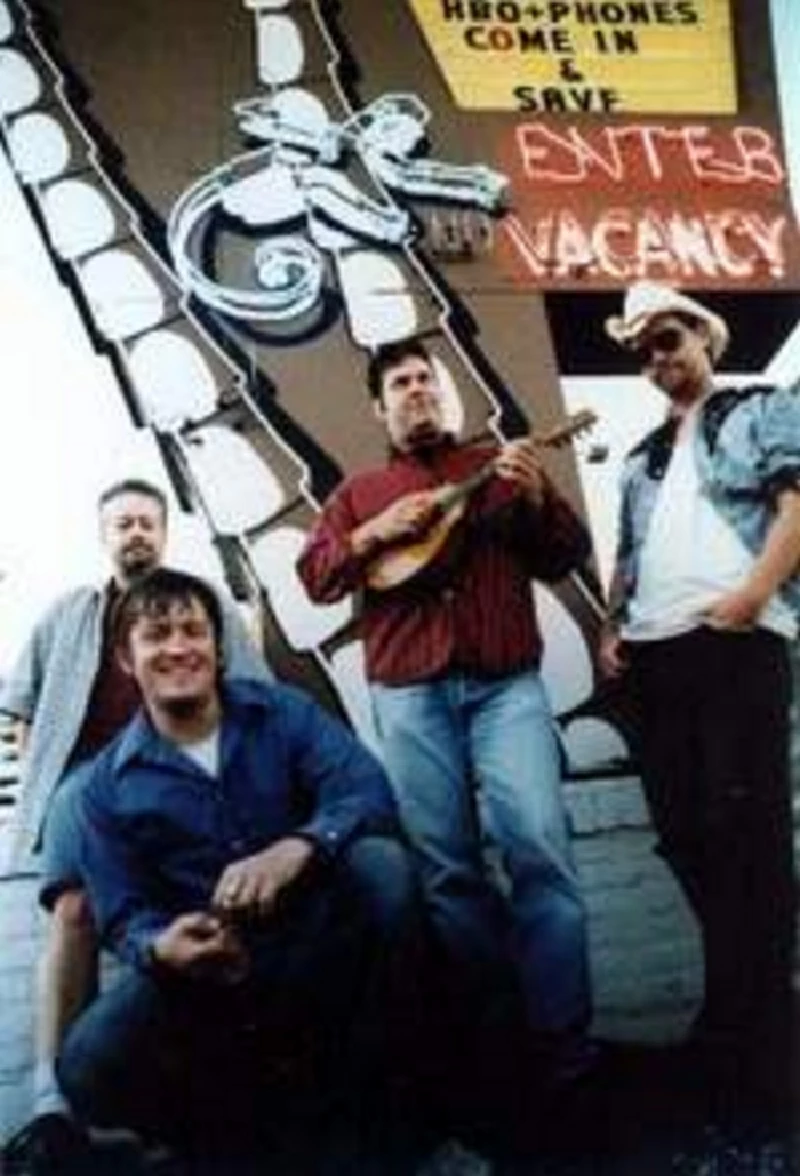
intro
Naming their fifth and most recent record 'Winnemucca' after a small Nevada gambling town, Willy Vlautin and Dave Harding from highly regarded 'country punk' group Richmond Fontaine speak to John Clarkson about Winnemucca and lyric and song writing
Winnemucca is a small town of 5000 people, three hours East of Reno in Nevada. Situated on the edge of the Humboldt River and just off the I-80 interstate, it is, like many other of the isolated towns in the Nevada state, a gambling mecca. Near the edge of the desert, it is place where people often come to escape from the world, to hide, sometimes from themselves. Willy Vlautin, the frontman in Richmond Fontaine, was born and raised in Nevada, and has been coming to Winnemucca since he was a boy. Since he moved to Portland, Oregon and formed Richmond Fontaine with bassist Dave Harding and original drummer Stuart Gaston in 1995, he has brought the group back to Winnemucca on numerous occasions. It has become something of a homing area for the band when it has been playing dates in the Mid West, a regular venue for the popular “country punk” quartet to start and to conclude its tours. It was perhaps inevitable that the band should decide to call their fifth and latest album, ‘Winnemucca’. Many of the songs that appear on the CD were written and are set there. Vlautin also occasionally still holidays there, and several of his narrative-driven, character-based lyrics were inspired by events that he has witnessed and imagined happening in its bars, hotel rooms and streets. Vlautin tells in’ Winnemucca’ of lives often on a cusp. “Winner’s Casino’ has its protagonist arriving back in Winnemucca, wanting to “lose”himself after a long absence, while ‘Out of State’ captures the splendid isolation of two lovers locked away from the world in a motel room. ‘Northline’ describes the thwarted romance between a boy and his unsuitable skinhead girlfriend, and ‘Santiam’ chronicles the last anguished hours of freedom of a convict who is being driven by his brother to start an eighteen month jail term in a work prison.’Five Degrees Below Zero’ meanwhile tells of Ray Thaves who, having had to pawn everything, is riding reluctantly on a Greyhound bus back to stay his uncle’s house in Los Angeles. The epic final track ‘Western Skyline’, the most autobiographical track on the album, is based on the tragedy of Vlautin’s uncle’s death who was killed in a hunting accident, and is written from the perspective of a man having to hold his dying friend as he bleeds to death. While Richmond Fontaine’s last album ‘Last Son’, which was released in 1999, was a dark, brooding punk album, ‘Winnemucca’, which is the group’s first release on its own El Cotez records, is in contrast a more subdued affair with a strong emphasis on acoustics and cinematic atmospherics. There is a lack of electric guitars, and the pedal steel of guitarist Paul Brainard, who became an offical member of the band at the time of “Lost Son’, is used as a main instrument. The album is also the first Richmond Fontaine studio album to feature Gaston’s replacement Sean Oldham, who has drummed with the band for the last two years. It was recorded at the Type Foundry studio in Portland, with John Askew, who fronts the band Tracker and runs the FILM Guerrero record label, and Joanna Bolme, who has worked with Stephen Malkmus and Elliot Smith, both co-producing. As well as eight songs that feature Vlautin’s lyrics, the ten track ’Winnemucca’ also has two instrumentals, “Twyla’ and ‘Patty’s Retreat’. In an interview with Pennyblackmusic, Vlautin and Dave Harding talked about Winnemucca, lyric and song writing, and the long production of the album. PB : Why did you decide to call the album 'Winnemucca' ? WV : I had gone there for years to gamble and to stay at this place, Winner's Casino. When the band toured the Middle East. we would always stop there. They have great Basque food and we always had a good time there.Then on one tour on the way back we stopped there for a week, and just partied and worked on some songs there. I don’t do it so much now, but I have always gone down there to escape from things. We all felt the same way about Winnemucca, and the whole album, therefore, developed this theme about hiding out and escaping. Winnemucca’s a small little town. It’s really tiny. There's only a few places to go, but , as it is a gambling town, they are used to lots of different sorts of people coming through there. Noone bothers you. Some small towns are such tight-knit communities that they really notice you when they come into town, but in a town like Winnemucca you can do and be whoeever you want as long as you spend money, or are into drinking and gambling. PB : You can be anonymous there basically ? WV : Yeah ! You are in a small community, but you can still be anonymous. Totally. Nearly everybody there meets in the casino. Whether you going through a hard time, or are on some kind of tourist junket, noone really bothers you. . PB : You said that you wrote some songs there. How many of the songs that appeared on the album were actually written there ? WV : We worked out ‘Winner's Casino' , 'Out of State' and ‘Five Degrees Below Zero' there, and also 'Twyla', the instrumental.. DH :' We worked out a part of ‘Western Skyline' as well , but wrote the main majority of it up here in Portland. PB : The album was recorded at the Type Foundry studio in Portland. Why did you decide to record it there ? DH : Well, I had done some work with John Askew , playing some music with him and doing some recording, and I had also heard his band Tracker’s album ‘Polk’ which had been recorded there, and the Norfolk and Western record ‘Centralia’ which he had also been involved in. I really liked the acoustic sounding feel of those records, and the vibe that went out of that studio. We' had done our last couple of records at Jackpot, here in Portland, which is a pretty well known studio, and were just looking and wanting to try somethiing different. PB : How long did the album take to record ? WV : (laughs). We went in there just to do demos. We did some recording with John Askew, and then we brought in our friend Joanna Bolme, who is now playing with Steve Malkmus, to finish things off. It took a lot longer than any of our other records. It has a different feel to our other records and was a lot harder to record, although it seemed like it should be easier. DH : We went in there with the intention of knocking it out in a couple of days. For whatever reason, it just ended up taking a lot longer. PB : What do you think John was able to contribute to the album ? DH : Most of the stuff we did with John was done pretty much in one take. WV : He's got a really nice way about him, and he’s such a good guy.You trust what he says as good. When you go into the studio, he doesn't make it difficult at all. We did a lot of songs with him on the first take, and then a lot of them we went to the bar and then came back and did them all in a row. A lot of those came out pretty good. He knows his equipment really well there and he's just got this manner about him which makes you feel comfortable. PB : You got Joanna in from outside. How do you think she was able to contribute to the album ? WV : Most of the people we have worked with have been men. She had a different approach to many of the other people we had worked with. She is very calm and was really good at telling us what to do. We liked that. We all respected her a lot, and were all on our best behaviour around her (Laughs !) She kind of cracks the whip a little bit. DH : When we had recorded a song and had a tape we were going to use, she would sometimes insist on doing it again (Laughs !) .She is always searching for that all perfect take,... WV : While John's approach was to do a take once or twice DH : There was just a diifferent feel to it. PB : It's an album that uses very few electric guitars. WV : Yeah, I was definitely not wanting them. That last record of ours, 'Lost Son', was such a dark record. It was the most brutal record that I thought that we had done. I was kind of beat up from thinking that way through that record, and by the time we had finished recording it, felt pretty rough. I really wanted the next record to be like the opposite of that one. When you wake up the next day, a record like that seems like the night. The next morning you want to hide out, and, therefore, you may not want live electric guitars. You're kind of worn out. That was what I was thinking anyway.I think there is only electric guitar on two of the songs. PB : There was definitely then a conscious decision not to have electric guitars on the album ? WV : Yeah, definitely ! I think we definitely wanted to feel that the record had a different feel to it, and to live or die by that. If people liked it, that would be great, but if it didn't work we didn't want to throw in a couple of rock songs just to pad things out. PB : The band's got much heralded punk roots, and are often described as “country punks”. “Winnemucca’ is more of a country album than a punk album. Do you see 'it in any way as being a punk album ? WV : No, I think of this record as one on which you have been on a bender, living really hard, and after it’s over you try to figure out who you are. That's why it's all about hiding out. We have also thrown a couple of good luck charms on there like ‘Twyla', the instrumental, which is about a jockey in Portland. ‘Patty's Retreat', the other instrumental, is a favourite bar of Dave's and mine in Winnemucca. The album also is all about trying to find things to chill out. That's not very punk rock. The last record "Lost Son' was so much like punk rock in thought and deed, and angry that I didn't want to be like that anymore. You end up dying if you think that way too much. DH : We go into lots of different areas, and encompass lots of different thoughts. That's not to say though that our next record might be another angry record or that it might be something completely different again. ‘Winnemucca' puts a lot of emphasis on the pedal steel though and is a much lighter tpe of record . PB : ‘Winnemucca’ has a real sense of spaciousness. Do you think that was largely down to using the pedal steel as a main instrument ? WV : Paul, our pedal steel player, is really good, but a lot of the time when we are playing the electric guitar and the steel together they sometimes drown each other out. We always knew how good he was, but it was great to see him do his own thing a little more and a lot of fun to watch him record. PB : How does the band write its songs ? Is there a set fashion ? WV : I usually come in with the basic shell of the song, and it written in part. I write all the parts on the acoustic guitar , and bring the first basic chord situation to Dave and the guys, who rearrange it and make it a much better song. DH : Sometimes Willy will bring something in and say perhaps something like the has written an acoustic folk type song , and we’ll go “Naaah !”and completely change the rhythm on it and maybe make it something like more of a rock song.We’ll go with with something from the basics that Willy brings in, but might completely rearrange the structure PB : Many of the characters in the songs on ‘Winnemucca’-the guy going to jail in ‘Santiome’, and the boy who is in love with and who has lost the skinhead girl in ‘Northline’in particular- all seem to be sort of coping with some sort of form of loss. Would you agree with that interpretation ? WV : Yeah, definitely ! The guy in ‘Santiome’ is going to a work prison for a year and a half. You don’t really know what he has done, but he’s scared, and and is looking at everything around him like it is for the first time and realises how much he likes it and willl miss it. He’s frightened as maybe he’ll never get back to where he was. The boy in’ ‘Northline’ is lonely. He didn’t like the way his girlfriend was living and could not justifyit in many different ways, but it is still better to him than being alone. DH : Willy really loves his characters. He sees them as real people and he really cares about them. I think that is great. You have this fictional, made-up person, and it is someone that he really cares about and wants to succeed. PB :It is quite a spiritual album as well because nearly everyone is looking for or dreaming of something better. WV : Yes, very much so. After that last record, I had to find reasons to get up in the morning. I am really scared of dark things and violence, but I can’t stop thinking about them sometimes. I write about them to face up to my fears. There comes a time though when you have to force yourself to take notice of the good things, like your favourite bar, your favourite jockey or whatever. The guy on ‘Santiiam’ wakes up to hear kids playing outside when he is hungover, which he likes.If you try to take those things as seriously as you would your fears, you hopefully give yourself hope, and try I guess to find a reason to live , and to be happy. PB : Where do you get the inspiration for your lyrics from ? How much of it is based on autobiography, and how much of it is based on imagination ? WV : It depends. I’ll feel a certain way about something, and I’ll think about it, and then a story will appear. I may not have exacly lived it, but the feelings that come associated with it are generally real. I couldn’t live all those stories. I would be dead (Laughs). I did, however, work with this really good-looking skinhead girl. She was like a really rough girl, but I really thought she was cute. I never went out with her, because she just didn’t like me, but I was that guy in the song though. I also, like Ray in ‘Five Degrees Below Zero’, went on this long bus ride and had a similar experience where I was trying so hard to be a good person and get my shit together and be positive and try and to change my life. ‘ Western Skyline’ I wrote for my uncle. He died in a hunting accident, and I wrote the song from the viewpoint of a buddy of his who had to hold him as he died. He bled to death in about ten minutes, and his friend had to hold him. I used to go fishing near the spot where he died throughout my childhood, so I started thinking about what you would say to your friend and do if you were in that situation. I think too much about shit like that, I guess. PB : You’re also a short story writer ? WV : Yeah, I am. I write short stories. I have written some novels as well. PB : Have you had anything published ? WV : I used to publish my short stories, but when the band started going, I quit doing that. I write novels like in my spare time, but they’re not anything special or anything like that. I keep them to myself, and work on them, like as a hobby. PB : Despite the strong storytelling element of the album , you’ve also got two really good instrumentals, atmospheric instrumentals. Why did you decide to put those on the album ? Was that to show another side to the band ? WV : Yeah ! The other guys are really good musicians and can do so much different stuff, and I don’t think that has always been shown up on our past records. ’I really like ‘Twyla’,which is about Twyla Becker the jockey, in particular. DH : I had a lot of fun doing ‘Patty’s Retreat’. That was a tune we got together in the studio. It started out kind of simple, and then turned into this swirling, breezy thing. As we have grown as a band, we have got better at experimenting in the studio and doing cool stuff like that. WV : We write a lot of instrumentals that we never record and it was great to be able to get those onto this record. It helped to create an atmosphere. I am a huge fan of instrumentals, especially with this band because I get kind of tired of myself. DH : We felt that it would be good having instrumentals on there, and to give the listener a break from the words (Laughs) WV : Yeah,the depressing words (Laughs) PB : The group has released the album on its own label El Cortez. Why did you decide to self-release it ? WV : We had two offers fall through, which kept us waiting for nearly a year and a half to put out the album.With our last deal, we got all the lawyer's stuff negotiated, but right before we were supposed to sign the final contract the label filedChapter 11. We would have to spend a lot of money getting another lawyer to start all over again to put the record out, so we got lucky with distribution and decided to put it out ourself. PB : What will the band be doing next ? WV : We're going on a small tour. We are going to be playing with the Flatlliners which is really cool. Winnemucca have invited us to come down there which is going to be really fun.We will probably just record another record in the fall, and then just keep touring PB : What plans have you got in store for the next record ? WV : I'm not really sure what the new record is going to be like yet . We have already got most of the songs. We haven't really figured out the whole feel. Dave's the best at that. You can take a bunch of songs, and he can make the record work instinctively. He knows which order, which songs work, and that sort of thing. DH : We will get the songs first, and then instead of just going and recording twelve songs, will perhaps record twenty songs and then maybe use twelve of those songs and cohese them together to make the right sound. WV : We've both always been fans Iof making records that have a feel to them Whether it works or not for the majority of people, I would much rather do than simply write twelve catchy songs. That's why we put two instrumentals on our last record when there' were only eight real vocal songs, but it seems better doing that than throwing in a mid-tempo or a pop hit. I Neitrher of us have ever been fans of things like that PB : Thank you
Band Links:-
http://richmondfontaine.com/https://www.facebook.com/Richmond-Fontaine-100281195567/
https://twitter.com/rffontaine
Have a Listen:-
Picture Gallery:-

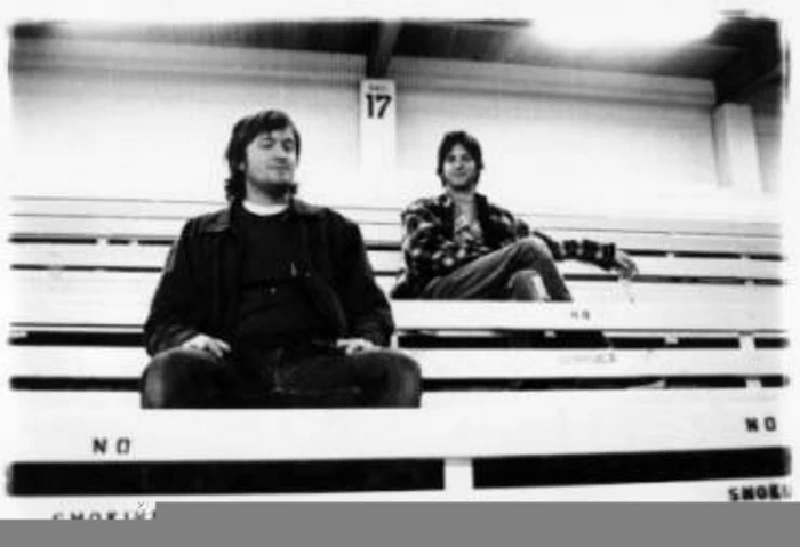
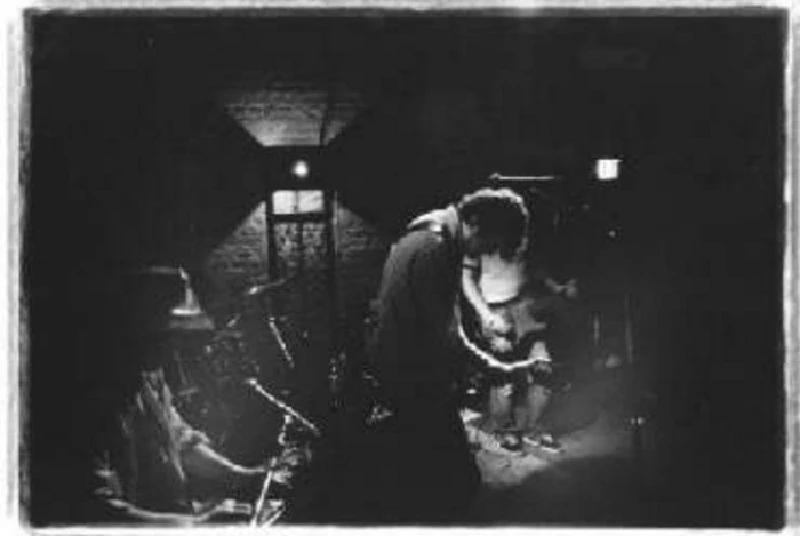
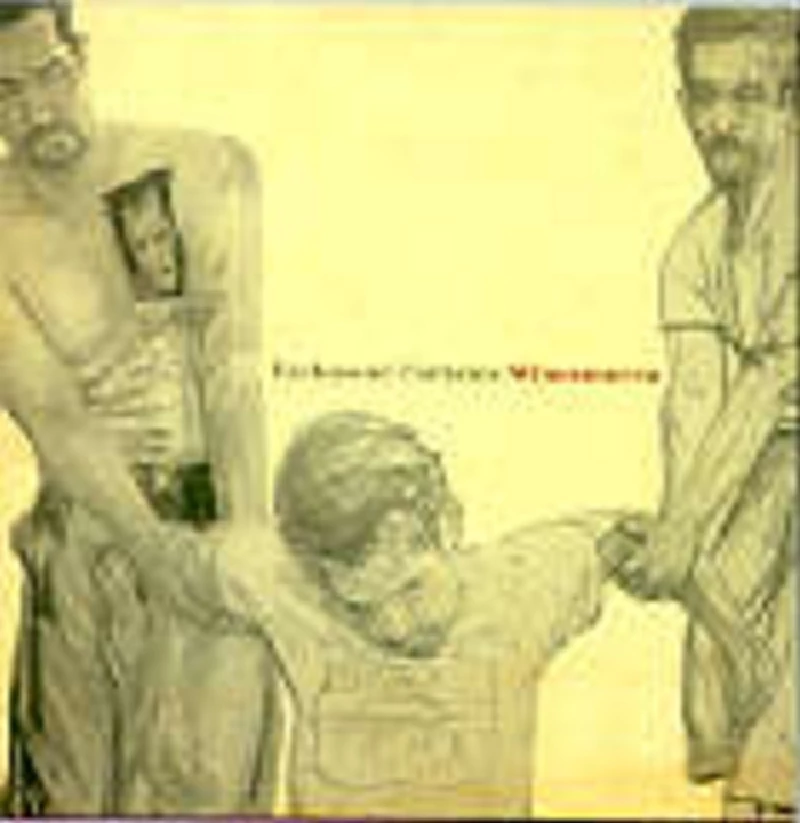
interviews |
|
Interview (2016) |
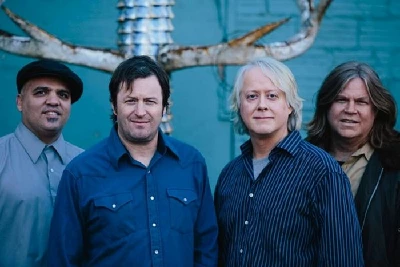
|
| John Clarkson speaks to Willy Vlautin, the vocalist and songwriter with acclaimed Portland, Oregon-based Americana band Richmond Fontaine about its tenth and farewell album, ‘You Can’t Go Back if There’s Nothing to Go Back to' |
| Interview (2009) |
| Interview (2007) |
| Interview (2005) |
| Interview (2004) |
live reviews |
|
Greystones, Sheffield, 25/4/2016 |
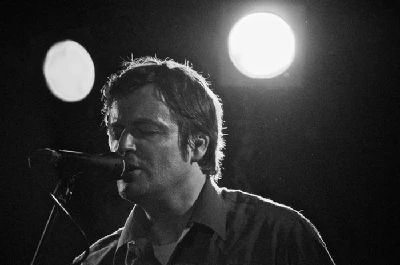
|
| Keith How enjoys Richmond Fontaine's literary Americana at a gig in Sheffield on their farewell tour |
| Luminaire, London, 22/5/2007 |
| Borderline, London, 28/9/2004 |
| Spitz, London, 25/5/2004 |
reviews |
|
We Used To Think The Freeway Sounded Like A River (2009) |
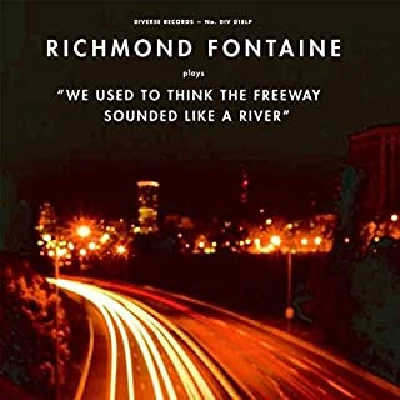
|
| Cinematic and atmospheric eighth studio album from Portland, Oregon-based group Richmond Fontaine, which, while often sadly bleak in its subject matter, is also emphatically life affirming |
| Thirteen Cities (2007) |
| Post To Wire (2004) |
| Winnemucca (2002) |
most viewed articles
current edition
Tossing Seed - InterviewWaterboys - Roundhouse, London, 1/6/2025
Last of the Lovely Days - Interview
Lemonheads - O2 Ritz, Manchester, 16/8/2025
Brian Wilson - 1942-2025
Cary Baker - Down on the Corner: Adventures in Busking and Street Music
Robert Forster - Interview
Morrissey - Photoscapes
Belouis Some - Video Vault
Motorcycle Boy - Interview
previous editions
Flip Side - Raging PagesStereogram Revue - Voodoo Rooms, Edinburgh, 2/12.2015
Bob Mould - Brooklyn Bowl, O2 Academy, London, 11/2/2016
John Clarkson - A Life in Music
Bill Hicks - Profile
Ain't That Always The Way - Alan Horne After The Sound of Young Scotland 2
That Petrol Emotion - That Petrol Emotion, Town and Country Club, London, 1988
School - Interview
Miscellaneous - Minehead, Somerset, 8/5/2009...10/5/2009
Dave Greenfield - 1949-2020
most viewed reviews
current edition
Liarbilitys - VandalheartKirk Adams and Ed Woltil - Eat The Sunshine, Drink The Starshine
Wolf Alice - The Clearing
Big Flame - Peel Sessions 84-86
Silver Biplanes - Coming Up For Air
Bruce Dickinson - More Balls to Picasso
Good Charlotte - Motel du Cap
Suzie Ungerleider - Among The Evergreens
Phew, Erika Kobayashi,, Dieter Moebius - Radium Girls
Rupert Wates - Father to the Man
related articles |
|
Delines: Interview (2014 |
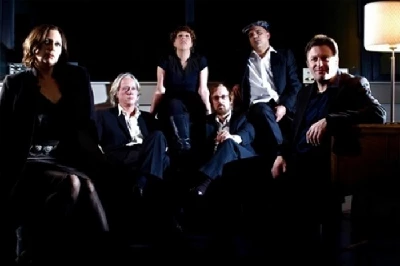
|
| Richmond Fontaine frontman and singer-songwriter Willy Vlautin talks to John Clarkson about his new band the Delines, their debut album 'Colfax', and 'The Free', his recently published fourth novel |
Pennyblackmusic Regular Contributors
Adrian Janes
Amanda J. Window
Andrew Twambley
Anthony Dhanendran
Benjamin Howarth
Cila Warncke
Daniel Cressey
Darren Aston
Dastardly
Dave Goodwin
Denzil Watson
Dominic B. Simpson
Eoghan Lyng
Fiona Hutchings
Harry Sherriff
Helen Tipping
Jamie Rowland
John Clarkson
Julie Cruickshank
Kimberly Bright
Lisa Torem
Maarten Schiethart